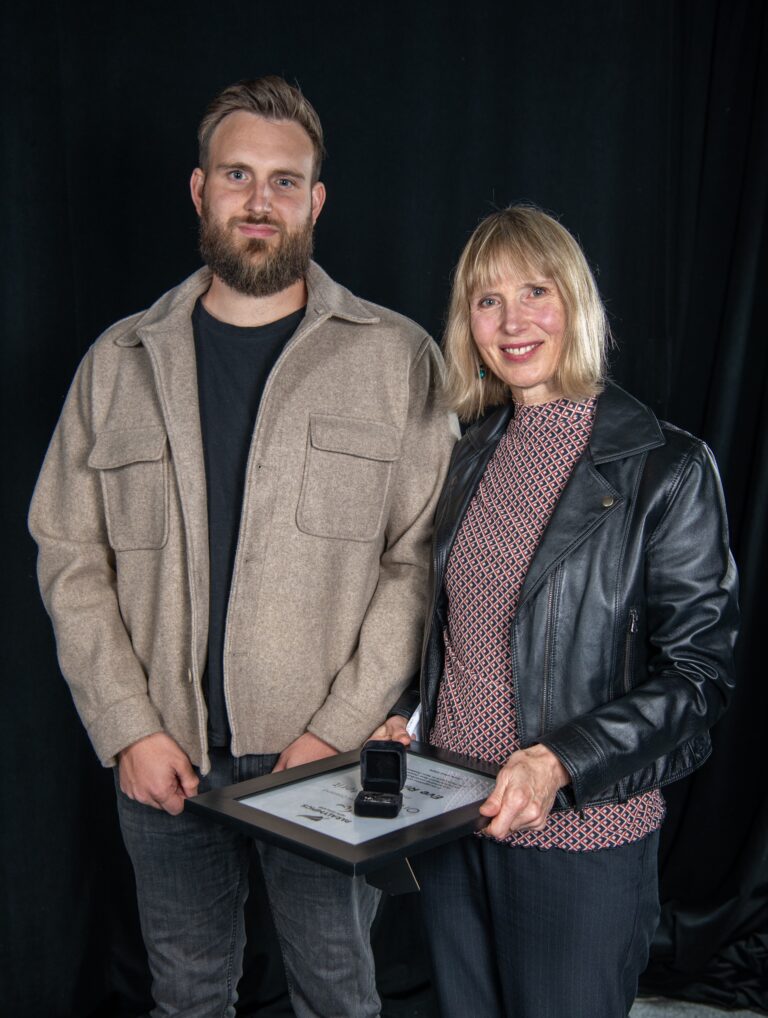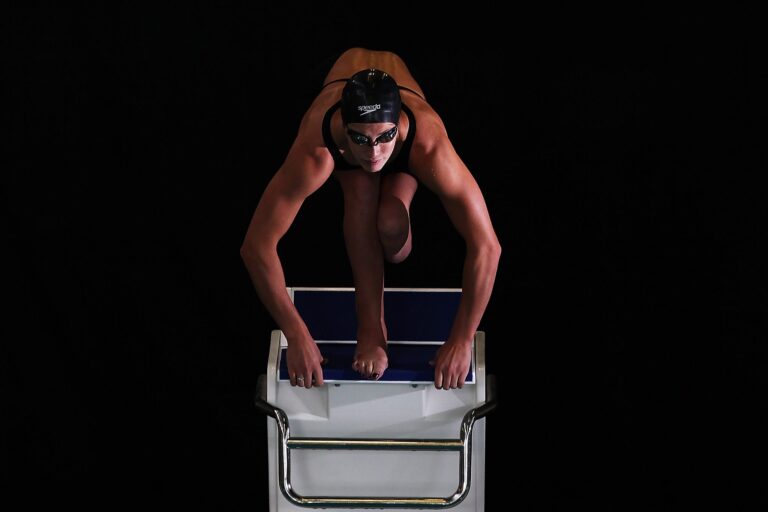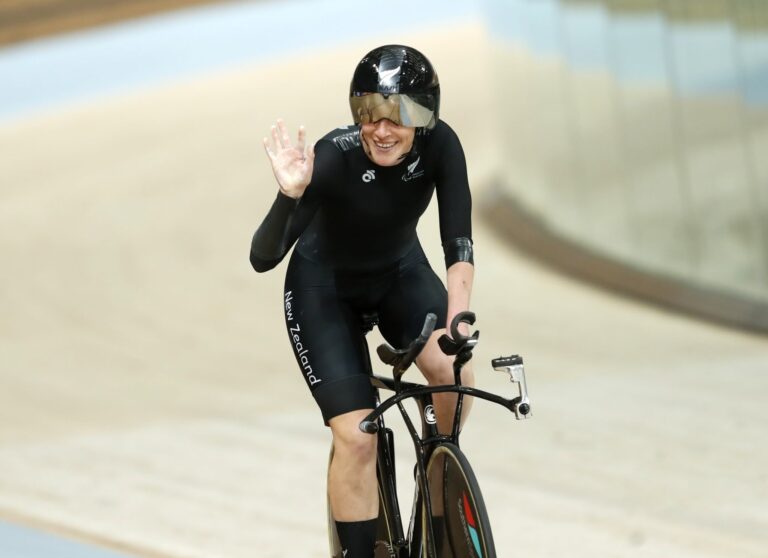A 25-year stalwart of Para sport classification, Marguerite Christophers has been presented with an inaugural global award for Para sport classification services.
The award is especially poignant as it comes as Christophers announces her retirement after 25 years in Para sport, and 14 years with Paralympics New Zealand. Classification determines who is eligible to compete in Para sport. A Para sport classifier’s role is to assign eligible athletes into sport classes. This minimises the impact of impairment on sporting outcomes.
Paralympics New Zealand CEO Greg Warnecke explains:
“Marguerite has done a huge amount not just classifying athletes, but also shaping and improving how classification works. She is uncompromising in her quest for the fairest athlete outcome. Her approach and wisdom have inspired so many both here and around the world over the past decades. We will miss her and wish her all the best in her next chapter.”
Christophers, who hails from Wellington but now calls Christchurch home, received the IPC Classification Recognition Award at the Annual IPC Classification Meeting. The award is in appreciation of Christophers’ contribution to the development of classification within the Paralympic Movement. It honours her dedication to classification within Paralympics New Zealand and World Triathlon.
“I feel incredibly honoured and privileged to receive this Award. I am so very proud of the decades of work that this Award recognises. We’re fortunate in New Zealand to have a great Classification Programme which carries respect and credibility within the Paralympic Movement globally.”

How it all started
From an initial career in occupational therapy, time as an elite representative in long distance running and triathlon, a sport technical official, to global expert on Para sport classification. Marguerite Christophers’ career has spanned a huge breadth. Not to mention her other passions. She is an outdoor pursuits enthusiast, a Cordon Bleu chef, mother to Amanda and Benjamin and grandmother to Hugo and Frankie.
Christophers reflects on how it all started:
“In 1998 I started working in disability sport for the Halberg Trust running after school sport programmes for children with disabilities. I was introduced to Para athletics classification in 2000. Things expanded from there. In 2005 I trained as a cerebral palsy sport classifier in the US. In 2008 I was managing the NZ Para Cycling Team at an event in Columbia and had the opportunity to train as a Para cycling classifier.
“Then in 2008, I was watching my son compete at the World Triathlon Championships in Hamburg. Because of my involvement in classification in other sports, I was asked to give a hand with Para triathlon classification. I was thrown in the deep end! The next year in Brisbane I got formal training and became an international Para triathlon classifier. When I took on the challenge in Hamburg little did, I know it would result in me leading Para triathlon classification internationally, something I am tremendously proud of.”

A turning point
Christophers became global Head of Classification for Para triathlon in 2010. At the time, Para triathlon was not yet a sport at the Paralympic Games. It was a turning point in her career. The responsibility, and time required to do the role, grew incrementally.
“Not only was I attending 2-3 international events a year, but also doing up to 20 hrs a week, as a volunteer, in my evenings and on the weekends on top of a full-time job! I was involved in developing a classifier training resource, training new classifiers and above all else, developing a new classification system for Para triathlon so we could attend the Paralympic Games for the first time.
“Triathlon is 3 sports, and it was not possible to just combine the classification system for swimming, cycling, and running, into one. It had to be a new system and based on scientific evidence.”


It would lead to one of Christophers’ proudest moments, as she boarded the technical official start boat in 2016 for the very first time that Para athletes contested triathlon at the Paralympics.
“All the hard work, sweat and tears had come to fruition.”
The workload took its toll, however.
“Although the thought of contributing to make a difference to people’s lives drove me in this role. In the end, in 2018, the workload became too much. I needed a better life balance. It was time for someone else to come into the role.”
Despite this, Christophers’ says the lowlights of her career are few, and outweighed by far by the highlights. One of those is developing a world leading Classification Programme in New Zealand during her tenure as Classification Manager for Paralympics New Zealand from 2009. Para sport, and with it, classification has evolved considerably over that time.
“When I first started work at Paralympics New Zealand in 2009, the first Classification Code was just being implemented. There were few standardised principles across all Para sports until then. In 2024, with the third edition of the Code, the impact of impairment on competition will be better minimised. Sporting success will be determined solely by sporting excellence.”
Looking back, Christophers is reflective.
“The hardest moments have been telling an athlete they aren’t eligible to compete in a sport. I have worked with some incredible athletes, amazing teams and wonderful people, in NZ and around the world. I’ve learned to value the different situations experienced, from the funniest ones, most rewarding ones, most challenging ones, and some sad ones and to fully appreciate all of the rich experiences I have had.”
Her closing message to her colleagues in New Zealand and around the world is to listen and be grateful:
“Be passionate. Listen, especially to the athletes. Always be thankful. Sport unites, regenerates, and allows us to express the potential that each of us have.”



























